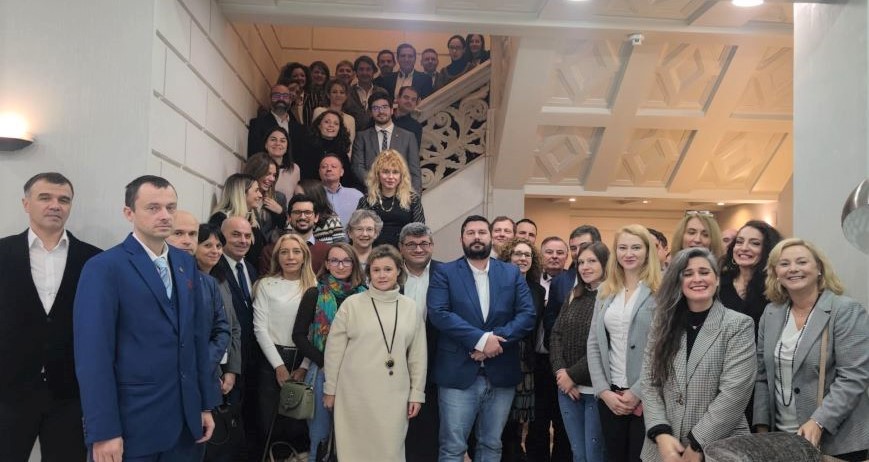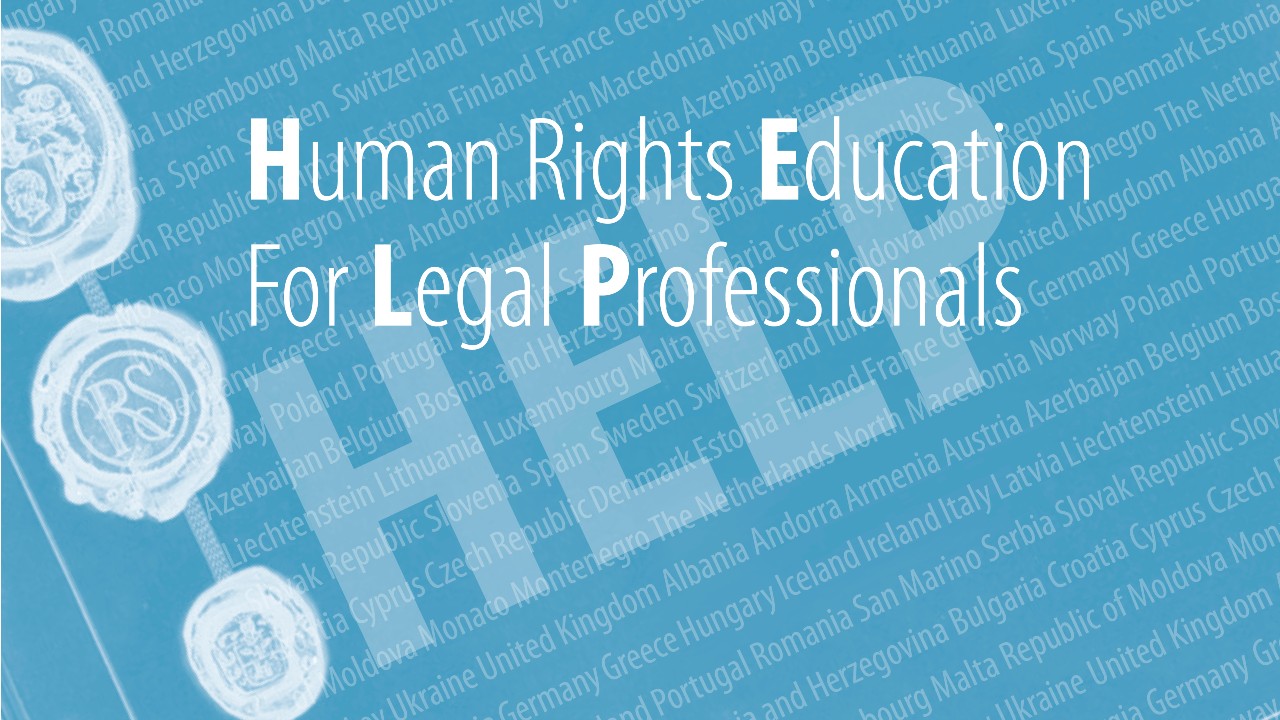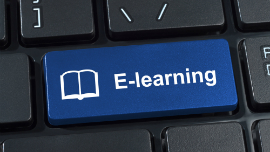This week the Spanish Bar (Consejo General de la Abogacía Española) is organising a series of events around the theme of human rights in the digital environment. On this occasion, fifty judges, prosecutors and lawyers from Spain and other EU Member States attended the launch of the Council of Europe HELP course on Cybercrime and Electronic Evidence.
The event was organised on 12 December 2023, by the Council of Europe and the Spanish Bar, at their premises in Madrid, Spain. The event took place in the framework of the EU-CoE Project “HELP in the EU III” (funded under the European Union’s Justice Programme (2021-2027)).
The launch began with introductory remarks from Victoria Ortega Benito (President of the Spanish Bar (Consejo General de la Abogacía Española)), Jorge Jiménez Martín (Director of the Spanish Judicial School and Maria Isabel Martin López, Representative of Spanish Prosecutor Office and HELP Focal Point for Prosecutors. All of them expressed their commitment to common and continuous human rights training through the yearlong collaboration with the HELP Programme and the various HELP courses adapted for judges, prosecutors and lawyers in Spain.
“The same technology that has transformed our society has a dark side: cybercrime,” said Victoria Ortega Benito. She further emphasised how often electronic evidence is used by legal professionals and how relevant is, in this day and age, the Budapest Convention on Cybercrime of the Council of Europe. Jorge Jiménez Martín stated that HELP courses remove physical obstacles and borders when it comes to human rights trainings, bringing together participants from a variety of jurisdictions, legal fields and areas of expertise and, in the case of Spain, the three main categories of legal professionals: judges, prosecutor and lawyers. Furthermore, as leader of the Latin-American network of Judiciary Schools, the Escuela Judicial promotes the use of HELP courses available in Spanish beyond Europe.
Maria Isabel Martin López recalled how useful the HELP courses were during the pandemic and how they were and continue to be an amazing opportunity for capacity building, skill enhancement, networking and reflecting on the latest legal matters. She noted that to date up to 400 Spanish prosecutors have benefitted from HELP courses, with the HELP courses on Violence against Women and Fight against Racism, Xenophobia and Homophobia embedded in initial training [by the Centro de Estudios Juridicos]. Both courses are also compulsory as initial training of Spanish judges.
Jiří Novák, Chairman of the IT Committee of the Council of Bars and Law Societies (CCBE), welcomed the participants and talked about the long-term impact of the collaboration with the HELP Programme for more than one million lawyers across Europe.
Eva Pastrana, Head of the Justice and Human Rights Division of the Council of Europe thanked the CGAE for hosting the launch and its partnership in EU-funded projects implemented by HELP. She praised all Spanish justice institutions members of the HELP Network and the CCBE for its cooperation. While we all benefit from accelerated digitalisation, she added that legal professionals have to pay particular attention to the dangers of technological development; she informed the participants that the HELP course on Cybercrime and Electronic Evidence was already taken by more than 3000 people and emphasised the important support of the European Union, through funding and requests for the development and implementation of HELP courses on particular topics. Furthermore, she introduced the participants to the work of the Council of Europe on cybercrime, and particularly the development and the supervision of the implementation of the Budapest Convention.
These interventions were followed by a session held by Aleid van den Brink, Member and First Vice-President of the Council of Europe’s Group of Experts on Action against Violence against Women and Domestic Violence (GREVIO). She talked about the Istanbul Convention and its interplay with the Budapest Convention, discussing instances of cyber-violence against women. She also introduced to the participants to the GREVIO’s General Recommendation No. 1 on the digital dimension of violence against women. Francisco Pérez Bes, Lawyer and Former Secretary General of the Spanish National Cybersecurity Institute (INCIBE), talked about the work of the Spanish Bar and of INCIBE on cybercrime. He described the functioning of INCIBE and discussed particular practical examples.
During the launch event, the participants also got acquainted with the HELP programme and its e-learning platform, which offers 49 courses on human rights. Furthermore, the groups met their HELP tutors, Maitane Valdecantos for the Spanish group as well as Attila Kökényesi-Bartos and Jiří Novák for the international group. They talked to the participants about their background and interests and provided some insights into the matters to be approached during the course and the timeline to be followed.
The tutors will provide the participants with support and guidance during the following months. During the launch event, all participants have been registered on the dedicated course page and are now ready to start the tutored course. HELP certificates, issued by the Council of Europe and the Spanish Bar (as well as the School of Judges and Prosecutor’s Office for the Spanish group), will be awarded to those who successfully complete the course.
******************************************
The HELP course on Cybercrime and Electronic evidence acknowledges that cybercrime and other crimes involving electronic evidence affect the right to private life of hundreds of millions of individuals whose personal data are stolen; attack the dignity and the integrity of individuals; are a threat to the freedom of expression, public security but also democratic stability. The course introduces participants to the basic concepts related to cybercrime and electronic evidence. It makes an overview of the challenges in investigating cybercrime, as well as the difficulties in collecting and handling of electronic evidence. The Council of Europe Budapest Convention on Cybercrime and its Additional Protocols remain the key source throughout the whole course as it provides tools to deal with the above challenges for the protection of human rights and enforcement of legal order.
This HELP course is primarily addressed to criminal justice authorities, judges, prosecutors, lawyers and other legal practitioners. The course is also relevant for other categories of professionals and students, such as law enforcement and professionals working in the field of child protection, and anyone interested in improving their knowledge on cybercrime and electronic evidence.
The course was published in 2022. It was developed jointly by the Cybercrime Programme Office and the Human Rights Education for Legal Professionals (HELP) Programme of the Council of Europe, with support from the Cybercrime@Octopus and the follow-up Octopus projects, funded by voluntary contributions. Joint EU/CoE projects GLACY+ and CyberEAST contributed as well.
The course has a duration of 10 hours and is available in self-learning format in 13 languages. Upon completion users, can generate their electronic Statements of Accomplishment, in proof of their acquired knowledge and skills.
HELP courses are intended, in the long term, to become an integral part of the overall learning curricula of the national training institutions and/or other competent authorities of the CoE member states and beyond.





